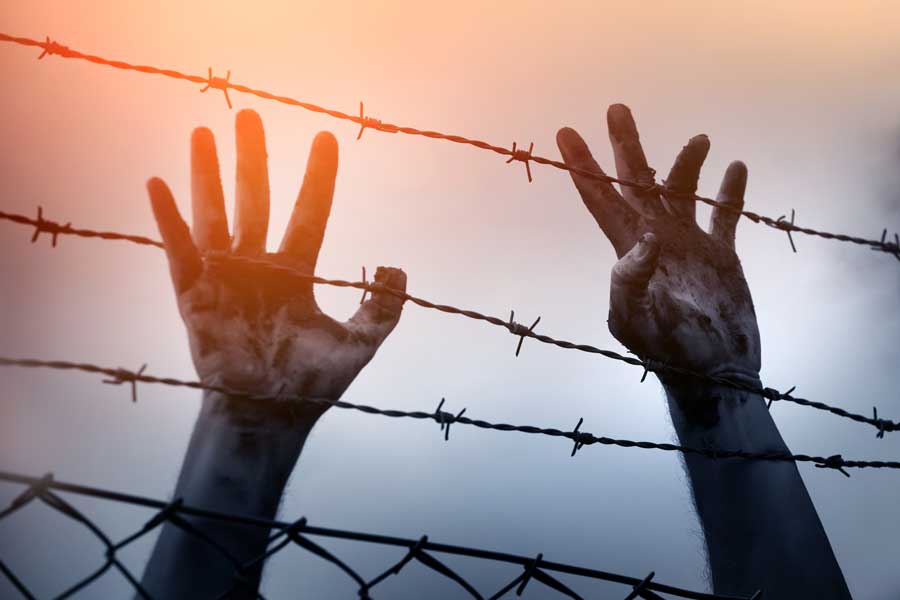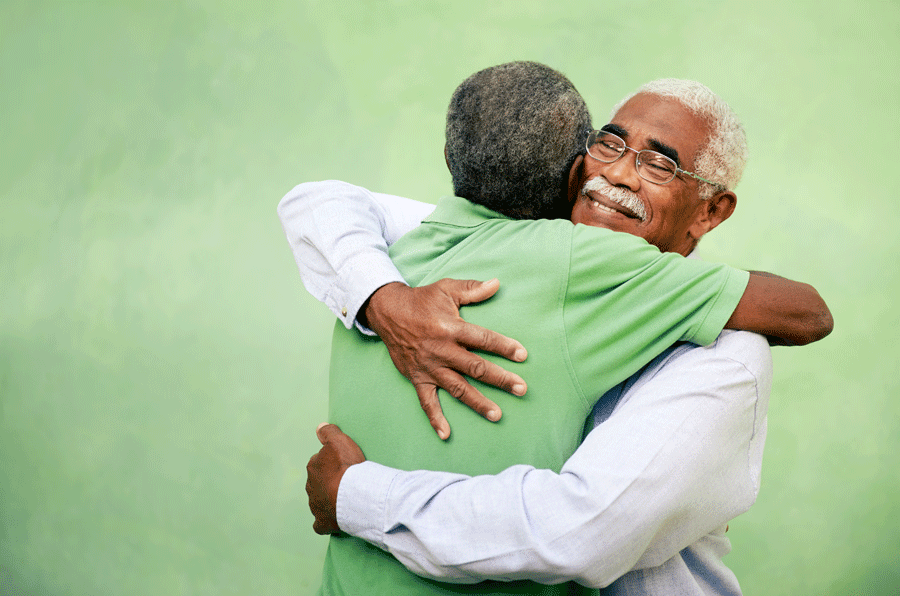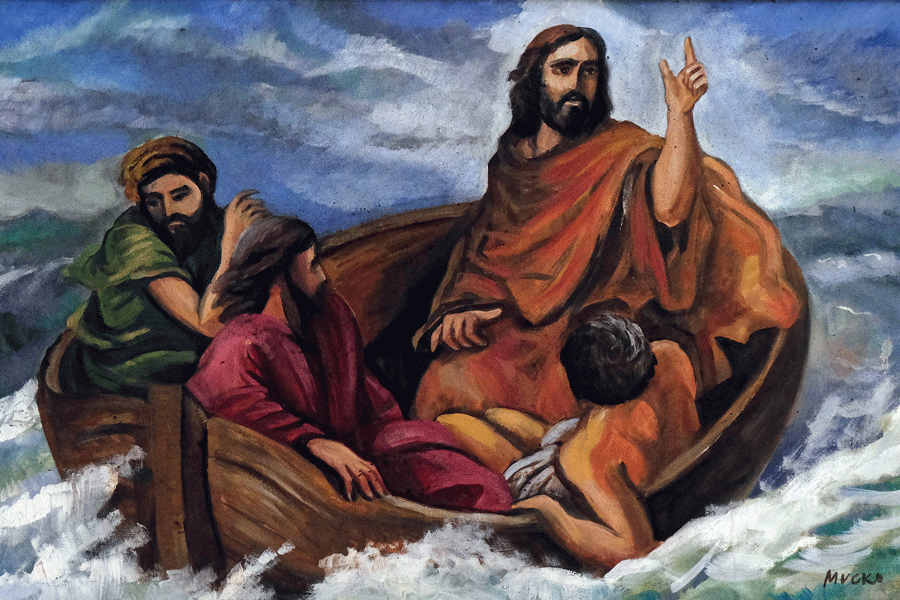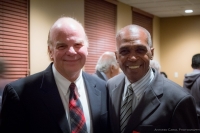Recent Blogs
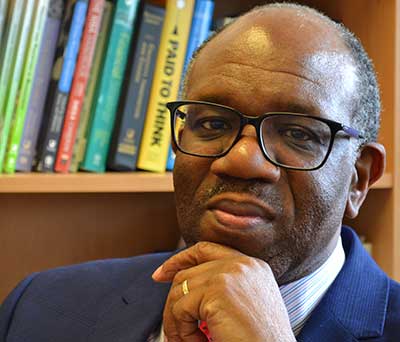 Dr. Joel EdwardsI was about to turn in for the night when I thought I should check my emails. In the list of unopened items, one message screamed out at me. It said, “More interviews…”
Dr. Joel EdwardsI was about to turn in for the night when I thought I should check my emails. In the list of unopened items, one message screamed out at me. It said, “More interviews…”
And it came from my colleague at Christian Solidarity Worldwide, who was in Ethiopia visiting an Eritrean refugee camp poised on the precarious borders between the two nations. One story told of a 26-year-old man who became a Christian at the age of 14 and who had subsequently been imprisoned for his faith. He was arrested when police stormed into his home group and tortured for three days. A second man was denounced as a Pentecostal, tied up and abandoned in a desert storm for a full day. He escaped near death when the driver of an army vehicle was alerted that he was about to run over him in the sand.
Sadly, stories like these are not uncommon. From Nigeria to North Korea and Burma, Bangladesh, an estimated 100 million Christians are persecuted for believing in Jesus and practicing their faith. Persecution takes many forms, from discrimination in employment or education to vandalism, disappearances, mutilation, or death. It may be instigated by nationalism, religious bigotry, ideological conflict, such as North Korea, or complex skirmishes over land or heritage. All too often, governments that have a principal responsibility to protect religious freedom instigate and perpetuate the injury and death of Christian believers.
Stories of persecution from around the world remind us that the claims of the Gospel can still be offensive – even when accompanied by good deeds.
But it is also a reminder that persecution and the loss of civil liberties are rampant worldwide. According to the Pew Foundation, 75% of the world’s population experience some degree of religious freedom violation. And whilst many of these are Christian brothers and sisters, persecution and religious freedom violations are not limited to Christians in Pakistan or North Korea.
This raises life-and-death questions for the Christian faith. How should we respond to such catastrophic realities as we worship, work, and go about our Christian witness?
Certainly, we should pray for parts of the Christian family experiencing persecution. That is the privilege and opportunity we have. Clearly, as we empathize with other parts of the body (1 Cor.12: 26; Heb. 13:3), we will be anxious to intercede on their behalf. Even Paul, the Christian icon of endurance, constantly asked for prayer (Rom. 15:30; Eph. 6:19; Phil. 1:19; Col. 4:3).
But our praying was never meant to be sufficient. No Christian who suffered for their faith in the first 300 years of the Church’s life had what we have today: binding humanitarian and universally agreed laws which protect the freedom to love God and follow Christ. Lest we think that our global human rights conventions came exclusively from the overflow of a secular, anti-Christian worldview, we should remember that a thousand years of Christian thinking and teaching helped shape our modern concepts of justice and understanding of freedom. Christians worked tirelessly to construct Article 18 of the 1948 Universal Declaration of Human Rights (UDHR) and subsequent universal conventions for civil, cultural, and political freedoms.
Anyone who has met Christians either in or emerging from the flames of persecution will know that feeling of being in the presence of a living saint. Almost without exception, their tenacious faith and overwhelming joy in the face of death is evidence of an unstoppable church. Their testimony makes sense of words from the 4th century North African church Father, Tertullian, who said that the blood of the saints is the seed of the church.
But Tertullian never intended to mute our voice of protest. Church history and the brutal situation in Syria and the Middle East is a reminder that the Christian presence can be depleted and decimated by persecution. In the words of a colleague, Christians expect persecution, but we don’t necessarily accept it.
In responding to those who are persecuted, we have the awesome privilege of drawing strength and inspiration from the wellsprings of their suffering, but we should never allow their faith to degenerate into fearsome loneliness. Their story of persecution is a poignant reminder that our spirit-filled prayers of faith should always be accompanied by prophetic protest that honors the energies of Christians who thought and fought for freedom.
Increasingly, those of us who live in the ‘global north’ are experiencing shades of marginalization as we seek to protect freedom of thought, conscience, and belief in the public sphere. The encroachment of our formerly assumed freedoms should energize us to stand in solidarity with those - like our brothers and sisters in Eritrea – whose experiences are often brutal compared to ours.
This means that alongside our prayers, we should act as megaphones of justice for the muted voices (Prov. 31:8,9; Isa. 1:17; Jer. 22:16).
But we are also responsible for seeing our persecuted brothers and sisters in a wider context. Clearly, the persecution of Christians should be of utmost importance to Christians. We have a responsibility to suffer with the body of Christ (1 Cor. 12:26; Gal. 6:10), and our commitment to care for members of the ‘family’ is in itself a witness to the fact that we are disciples of Christ (John 13:34,35; Rom.12:10; 13:8 1 Thess. 4:9). In any event, no one understands the needs of a Christian, as well as another member of the family and undoubtedly, Christian human rights activists, bring a fellow-ship factor to their work which is not available from secular organizations.
But true freedom is a continuum: it embraces the idea that all people are made in the image and likeness of God (Gen 1:26, 27) with dignity expressed in the freedom to choose. Therefore, freedom of thought, conscience, and belief has rightly been regarded as an indivisible freedom of the person. In the United States, the ‘baptistic’ ideal of freedom to believe without coercion from the State has therefore come to be regarded as the first freedom. From a Christian point of view, disregarding this freedom is an attack against the image of God. As theologian Nicholas Walterstorff suggests, “To torture a human being is to torture a creature whose nature he or she shares with the Second Person of the Trinity.”
The freedom to believe is not the exclusive right of Christians, and in our uncompromising advocacy for Christian freedom, our witness about God, and his relationship with everyone made in his image, will become neutralized if we present ourselves as partisan liberators. It is impossible to understand God’s response to human suffering as a tribal affair, for beyond God’s specific concern for Israel’s liberation (Exod. 3:6-10; Isa 61:1-9), it is abundantly clear that God presents himself as a universal liberator (Isa 58: 6-9; 61: Mic. 6:8; Luke 4:16-20).
To pray and protest for Christian freedom is consistent with who we are as Christ's body. To pray for and protest for the freedom of all the world’s citizens is unavoidably consistent with our mission.


